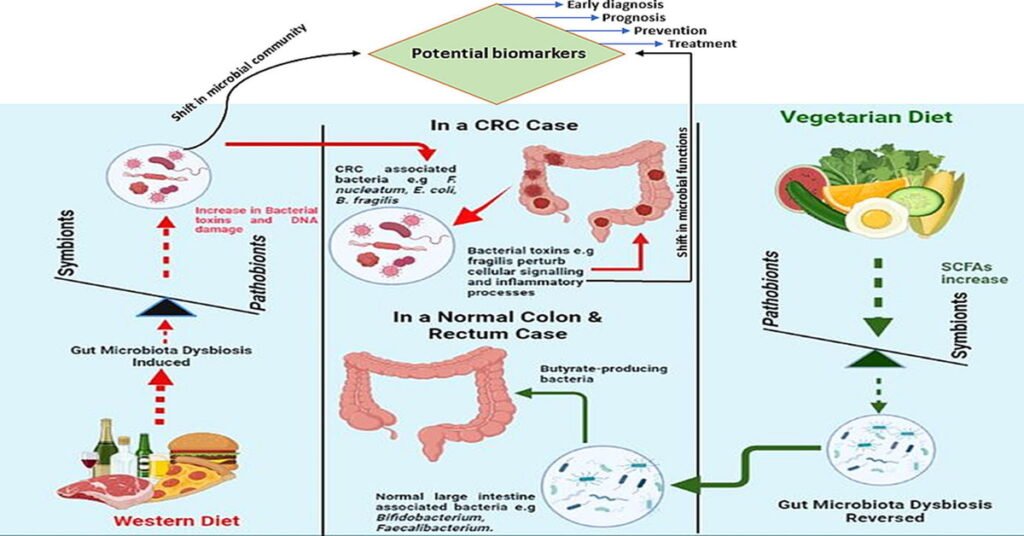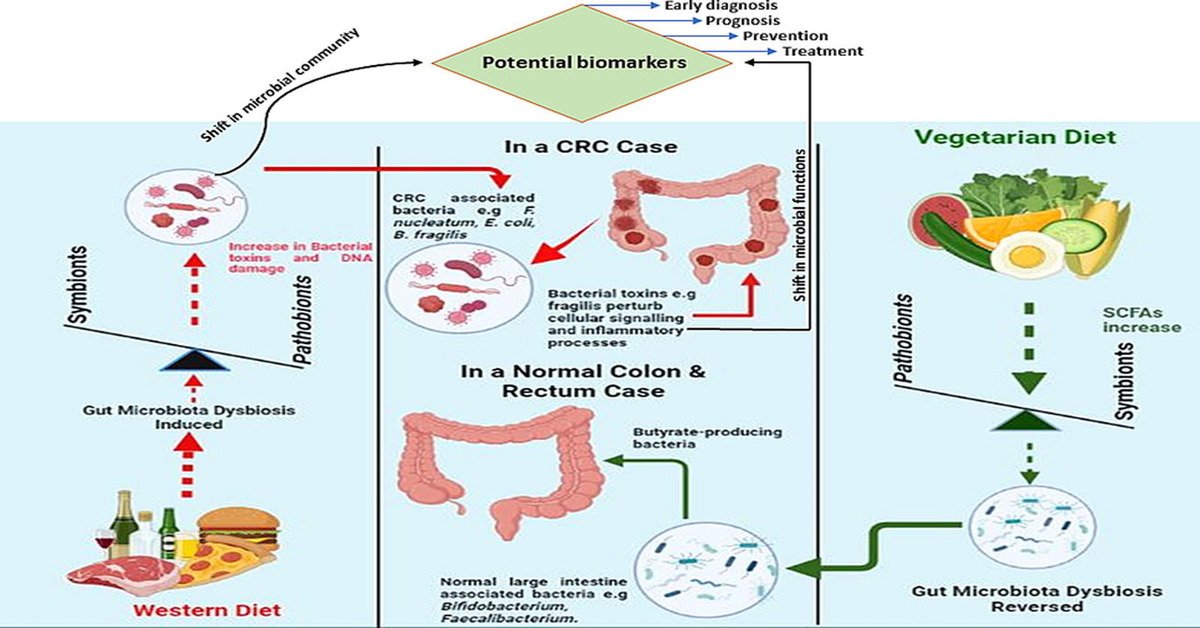
Have you ever wondered what’s really happening inside your gut after you eat? It’s not just your stomach or intestines doing all the work — trillions of tiny organisms, collectively known as your gut microbiome, are hard at work transforming your food into energy and nutrients. Recent studies reveal that gut microbes play an essential role in digestion, immunity, and even mental health! In this article, we’ll dive into how these microbes break down food, absorb nutrients, and maintain balance in your digestive system. Let’s explore the microscopic world that’s quietly shaping your wellness!
Contents [hide]
1. What Are Gut Microbes?
Definition and Overview of the Gut Microbiome
The gut microbiome refers to the vast community of microorganisms residing in your gastrointestinal tract. These include trillions of bacteria, viruses, fungi, and other microbes, collectively forming a complex ecosystem. Surprisingly, the number of microbial cells in your body may outnumber human cells, making the microbiome an integral part of your biology.
Types of Gut Microbes
- Bacteria: The most studied members, such as Bacteroides, Firmicutes, and Lactobacillus, which help with digestion and maintain gut health.
- Viruses: Some are harmless, while others can affect bacterial populations, playing an indirect role in digestion.
- Fungi: Though less abundant, fungi like Candida are part of a balanced gut ecosystem but can cause issues if overgrown.
- Protozoa and Archaea: These less common microbes still play a role in maintaining balance within the gut.
The Symbiotic Relationship with Humans
Your gut microbiome functions in harmony with your body. While you provide it with nutrients and a stable environment, it aids in digestion, produces essential compounds, and helps protect against harmful pathogens. This mutualistic relationship is critical for maintaining overall health.
2. How Gut Microbes Aid in Digestion
Breaking Down Complex Carbohydrates, Proteins, and Fats
Gut microbes excel at breaking down food components that your body’s enzymes alone cannot process:
- Carbohydrates: Fiber and resistant starches are fermented by microbes, producing energy-rich short-chain fatty acids (SCFAs) like butyrate, acetate, and propionate.
- Proteins: Specific bacteria assist in breaking down undigested proteins in the colon, releasing amino acids and other nutrients.
- Fats: Gut microbes interact with bile acids to enhance fat digestion and absorption.
Production of Short-Chain Fatty Acids (SCFAs)
SCFAs, particularly butyrate, are crucial for colon health. They:
- Provide energy for colon cells.
- Strengthen the gut barrier, preventing harmful substances from entering the bloodstream.
- Regulate inflammation, supporting immune function.
The Role of Gut Microbes in Fiber Fermentation
Dietary fibers, which your digestive enzymes can’t break down, are food for gut microbes. Through fermentation:
- The fibers are converted into SCFAs and gases.
- This process fuels beneficial bacteria and helps regulate bowel movements.
Balancing Gut Microbial Activity
The gut microbiome ensures that food is processed efficiently while preventing harmful pathogens from proliferating. When the microbiome is balanced, it optimizes digestion, but disruptions (dysbiosis) can lead to bloating, diarrhea, or even chronic diseases like irritable bowel syndrome (IBS).
3. Nutrient Synthesis and Absorption
Vitamin Production by Gut Microbes
Gut microbes contribute significantly to synthesizing certain vitamins essential for health:
- Vitamin K: Necessary for blood clotting, it is predominantly produced by gut bacteria, such as Escherichia coli and Bacteroides fragilis.
- B Vitamins: Microbes like Lactobacillus and Bifidobacterium synthesize vitamins B12, B6, and folate, which play roles in energy production, red blood cell formation, and DNA synthesis.
Enhancing Mineral Absorption
Gut microbes aid in absorbing vital minerals such as calcium, magnesium, and iron by maintaining an acidic environment and breaking down compounds that bind these minerals, making them bioavailable.
Role in Metabolizing Polyphenols
Polyphenols, found in fruits, vegetables, and tea, have numerous health benefits but are not easily absorbed. Gut microbes metabolize these compounds into bioactive forms that the body can efficiently utilize, contributing to their anti-inflammatory and antioxidant effects.
Short-Chain Fatty Acids and Nutrient Uptake
SCFAs produced during fiber fermentation also assist in nutrient absorption by:
- Strengthening the gut lining to improve permeability.
- Stimulating the transport of ions and nutrients across intestinal walls.
Link Between Microbes and Overall Energy Harvesting
An efficient gut microbiome maximizes the calories and nutrients extracted from food. Conversely, an imbalance can lead to malabsorption or contribute to weight-related issues, such as obesity or malnutrition.
4. The Role of Gut Microbes in Immune Health
Training the Immune System
The gut microbiome is essential for developing and training the immune system. Early exposure to diverse microbes teaches immune cells to differentiate between harmless substances and harmful pathogens, reducing the risk of allergies and autoimmune diseases.
Barrier Function and Defense Mechanisms
Gut microbes play a direct role in maintaining the gut barrier, which prevents harmful substances from entering the bloodstream. This is achieved through:
- Tight Junctions: Microbial metabolites like butyrate strengthen intestinal cell connections.
- Mucus Layer Production: Certain microbes promote mucus secretion, creating an additional barrier against pathogens.
Regulation of Inflammation
A balanced gut microbiome keeps inflammation in check by:
- Producing anti-inflammatory compounds like SCFAs.
- Modulating immune cell activity to prevent overreactions that could lead to chronic inflammation or autoimmune disorders.
Protection Against Pathogens
Beneficial gut bacteria outcompete harmful microbes for space and nutrients, producing antimicrobial substances that directly inhibit pathogen growth. This “colonization resistance” ensures that pathogens like Clostridium difficile or Salmonella are kept in check.
Communication Between Gut and Immune Cells
Gut microbes release signals that interact with immune cells via the gut-associated lymphoid tissue (GALT), the largest immune organ in the body. This interaction:
- Activates protective responses against infections.
- Maintains tolerance toward beneficial microbes and food-derived substances.
Gut Dysbiosis and Immune Disorders
An imbalanced gut microbiome (dysbiosis) can lead to weakened immunity, increasing susceptibility to infections and chronic diseases. Studies link dysbiosis to conditions like inflammatory bowel disease (IBD), rheumatoid arthritis, and even systemic illnesses like cardiovascular disease.
5. Gut Microbes and Brain Health
The Gut-Brain Axis: A Two-Way Communication Network
The gut and brain communicate through a complex network known as the gut-brain axis, involving the nervous system, hormones, and immune signaling. Gut microbes play a key role in this connection by influencing brain activity and emotional well-being.
- Vagus Nerve Pathway: This nerve connects the gut to the brain, transmitting signals influenced by microbial activity.
- Neurotransmitter Production: Gut bacteria like Lactobacillus and Bifidobacterium produce neurotransmitters such as serotonin, dopamine, and gamma-aminobutyric acid (GABA), which regulate mood, stress, and sleep.
- Serotonin Production: Approximately 90% of the body’s serotonin is produced in the gut, influencing mood stability.
- GABA: Helps reduce anxiety and promotes relaxation.
Influence on Mental Health
- Anxiety and Depression: Dysbiosis, or imbalance in gut microbes, has been linked to higher levels of stress, anxiety, and depression. Restoring microbial balance through diet or probiotics can improve mental health.
- Cognitive Function: A healthy microbiome supports memory and learning. Imbalances may contribute to neurodegenerative disorders like Alzheimer’s and Parkinson’s disease.
- Stress Response: The gut microbiome modulates the hypothalamic-pituitary-adrenal (HPA) axis, which governs the body’s response to stress. Imbalanced microbes can lead to heightened stress reactions.
Microbial Metabolites and Brain Health
Microbes produce metabolites, such as short-chain fatty acids (SCFAs), that:
- Cross the blood-brain barrier.
- Influence brain inflammation and neural growth.
- Enhance the production of protective brain chemicals.
Emerging Research on Gut Microbes and Neurological Disorders
Studies suggest links between gut microbes and conditions like autism spectrum disorders (ASD) and multiple sclerosis (MS). While research is ongoing, interventions targeting the gut microbiome show promise for improving symptoms.
6. Factors That Shape the Gut Microbiome
Diet: The Primary Architect of the Microbiome
- Fiber-Rich Foods: Support the growth of beneficial bacteria that produce SCFAs. Foods like fruits, vegetables, and whole grains are vital.
- Fermented Foods: Yogurt, kimchi, and kefir introduce probiotics that enhance microbial diversity.
- High-Sugar and High-Fat Diets: Promote harmful bacteria, leading to inflammation and dysbiosis.
Birth and Early Life
- Mode of Delivery: Babies born via vaginal delivery are exposed to beneficial maternal microbes, while those born via cesarean may have less diverse microbiomes.
- Breastfeeding: Provides prebiotics (human milk oligosaccharides) that promote the growth of beneficial bacteria like Bifidobacterium.
Antibiotics and Medications
- Disruption of Microbial Balance: Antibiotics can eliminate both harmful and beneficial bacteria, leading to temporary or long-term changes in the microbiome.
- Other Medications: Proton pump inhibitors (PPIs) and nonsteroidal anti-inflammatory drugs (NSAIDs) can alter gut microbial populations.
Lifestyle and Environment
- Exercise: Regular physical activity is associated with greater microbial diversity and improved gut health.
- Stress Levels: Chronic stress negatively affects gut bacteria, disrupting the gut-brain axis.
- Exposure to Microbes: Interaction with diverse environments, such as farms or natural settings, helps cultivate a resilient microbiome.
Genetics
While genetics play a role in shaping the microbiome, environmental factors like diet and lifestyle often have a greater influence, making it possible to improve gut health through conscious choices.
Age and Aging
- Youth: A dynamic and diverse microbiome develops during early life stages.
- Aging: Microbial diversity may decline with age, leading to increased susceptibility to inflammation and chronic diseases. However, maintaining a healthy diet and lifestyle can slow this decline.
Probiotics, Prebiotics, and Synbiotics
- Probiotics: Live beneficial bacteria found in foods and supplements.
- Prebiotics: Non-digestible fibers that nourish beneficial bacteria, found in foods like garlic, onions, and asparagus.
- Synbiotics: Products combining probiotics and prebiotics for synergistic effects.
Conclusion
Your gut microbiome is like a hidden superhero for digestion and overall health! From breaking down food to boosting immunity, these tiny microbes play a massive role in keeping you healthy. By eating a diverse, nutrient-rich diet and caring for your gut, you can ensure these microbes thrive. Ready to take charge of your gut health? Start incorporating more probiotic and prebiotic foods into your meals today!


